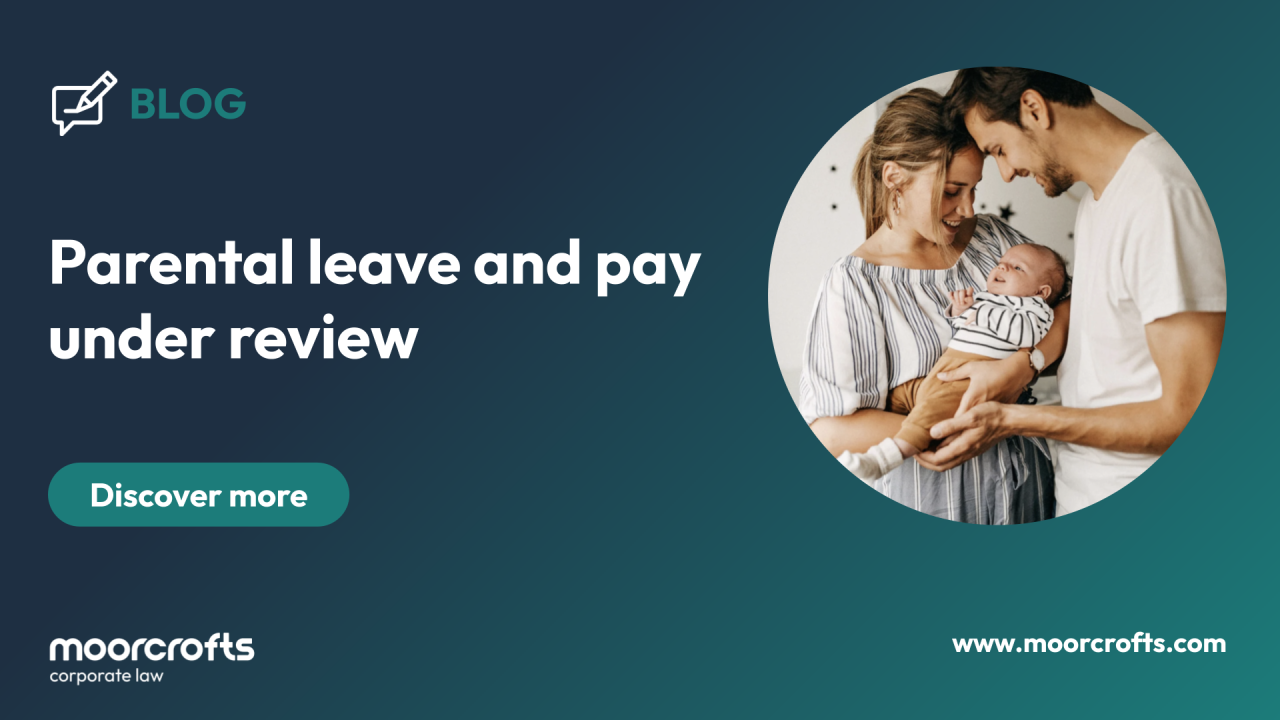Parental leave and pay under review
The UK government has launched a wide-ranging review of parental leave and pay, acknowledging what many working families have long known: the current system often fails to meet the realities of modern life. In comments reported by The Guardian this week, Business Secretary Jonathan Reynolds confirmed the government is listening to campaigners and parents and has recognised that the system is not working, particularly for young families grappling with rising childcare costs and a lack of flexibility in the workplace.
As it stands, statutory maternity leave in the UK allows mothers to take up to 52 weeks off, with pay for up to 39 weeks. The first six weeks are paid at 90% of average weekly earnings, followed by 33 weeks at either £187.18 or 90% of earnings (whichever is lower). Paternity leave, by contrast, remains much more limited fathers are entitled to just two weeks’ leave, paid at the lower of £187.18 or 90% of earnings.
In theory, Shared Parental Leave (SPL) offers more flexibility, allowing couples to share up to 50 weeks of leave and 37 weeks of pay. However, uptake has remained stubbornly low. Many families find the scheme confusing, and in practice, unaffordable.
This new review, announced in June 2025, aims to simplify the system while not increasing burdens on businesses, according to Reynolds. The Labour government is also considering making paternity leave and unpaid parental leave “day-one rights”, a change that could particularly benefit families in insecure or lower-paid employment, where continuous service requirements currently act as a barrier to access.
The review comes at a crucial time. Childcare in the UK is among the most expensive in Europe, and school-aged children add further challenges. The long summer holidays can be particularly stressful, as families scramble for affordable childcare options, or rely on grandparents, informal care, or unpaid leave. Many parents, especially mothers, feel compelled to reduce working hours or decline opportunities due to this gap in support.
This summer, employers may see an uptick in flexible working requests and a push for parental leave to help manage childcare over the break. While the statutory right to request flexible working became a day-one right under the Employment Relations (Flexible Working) Act 2023, it’s clear that more widespread cultural change is needed to make this right meaningful in practice.
Campaigners argue that better paternity leave is not just about fairness, it’s also about closing the gender pay gap and enabling more equal parenting. As the Guardian notes, one in three fathers still do not take paternity leave, largely due to the financial impact. When parental leave is short, inflexible, or poorly paid, it tends to reinforce traditional gender roles, leaving mothers to bear the brunt of career disruption.
This review signals a shift in tone and potentially in regulation. While the government has promised not to add new burdens to businesses, employers should prepare for:
- Increased awareness and use of parental leave schemes.
- More frequent flexible working requests, especially during school holidays.
- Potential legislative changes introducing or enhancing day-one rights.
- Greater pressure to offer family-friendly working practices as standard.
Employers who proactively support family life, through enhanced paternity policies, flexible scheduling, or transparent parental leave guidance, are likely to see improved retention and engagement.
The government’s parental leave review offers an opportunity to modernise a system that some feel puts families and especially women, at a disadvantage. With childcare pressures mounting and the cost of living still biting, is there a better structure that works for today’s working families? The review is expected to conclude and make its recommendations in January 2027.
We’ll continue to monitor the review closely and provide updates as proposals evolve. In the meantime, if you’re an employer or HR professional with questions about flexible working, family leave entitlements, or best practice, get in touch with our employment law team.



